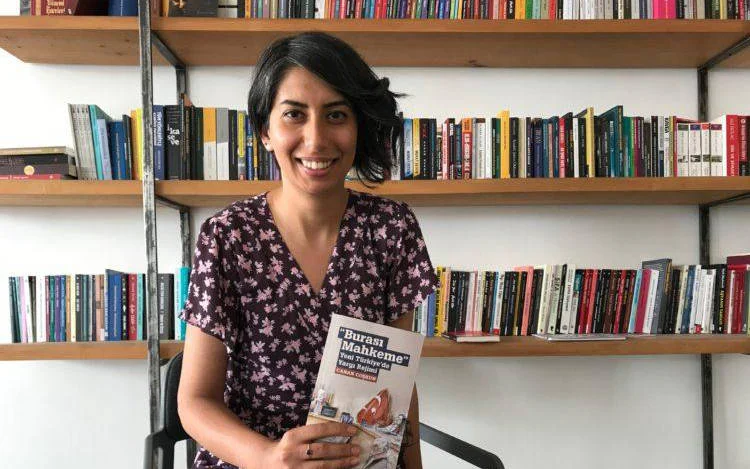The trial against journalist Canan Coşkun, stemming from her article titled "They Sang a Folk Song, They Were Arrested," published in Cumhuriyet on August 21, 2016, has been dropped.
Charged with "marking officials involved in the fight against terrorism as a target for terror groups (Anti-Terror Law Article 6/1)," Coşkun faced a retrial following a Constitutional Court ruling that found a violation in her case.
In today's hearing at İstanbul 14th Heavy Penal Court, the prosecutor requested the dismissal of the case due to the expiration of the 5-year probation period against Coşkun.
The court concurred with the prosecutor's opinion, revoking the deferred announcement of the verdict given in the initial trial and deciding to drop the case.
The hearing was attended by Reporters Without Borders (RSF) Turkey Representative and bianet Media Monitoring Rapporteur Erol Önderoğlu, Turkey Journalists' Union (TGS) lawyer Ülkü Şahin, and observers from the Media and Law Studies Association (MLSA) and P24.
What happened?
In August 2016, police detained 12 children in İstanbul's Esenyurt district, accusing them of singing folk songs in Recep Tayyip Erdoğan Park and allegedly subjected them to physical assault.
The prosecution claimed that the children were "members of a terrorist organization" and accused them of making "terrorist propaganda," seeking sentences of up to 15 years. Canan Coşkun covered the incident in Cumhuriyet newspaper on August 21, 2016, with the headline "They Sang a Folk Song, They Were Arrested."
However, Coşkun faced another lawsuit, accusing her of "marking officials involved in the fight against terrorism as a target for terror groups."
Coşkun was tried at İstanbul 14th Heavy Penal Court. On May 2, 2017, the court sentenced her to 10 months in prison with a deferred announcement of the verdict. However, Coşkun's lawyer objected to the postponement of the sentence. Istanbul 15th Heavy Penal Court accepted the objection, lifting the deferment of the verdict. Nevertheless, the 14th Heavy Penal Court did not implement the decision, citing that the higher court had "entered the substance of the case."
Coşkun's lawyer then took the case to the Constitutional Court, which ruled that there was a violation of the right to freedom of expression and sent the file back to the court for a retrial. (HA/VK)






